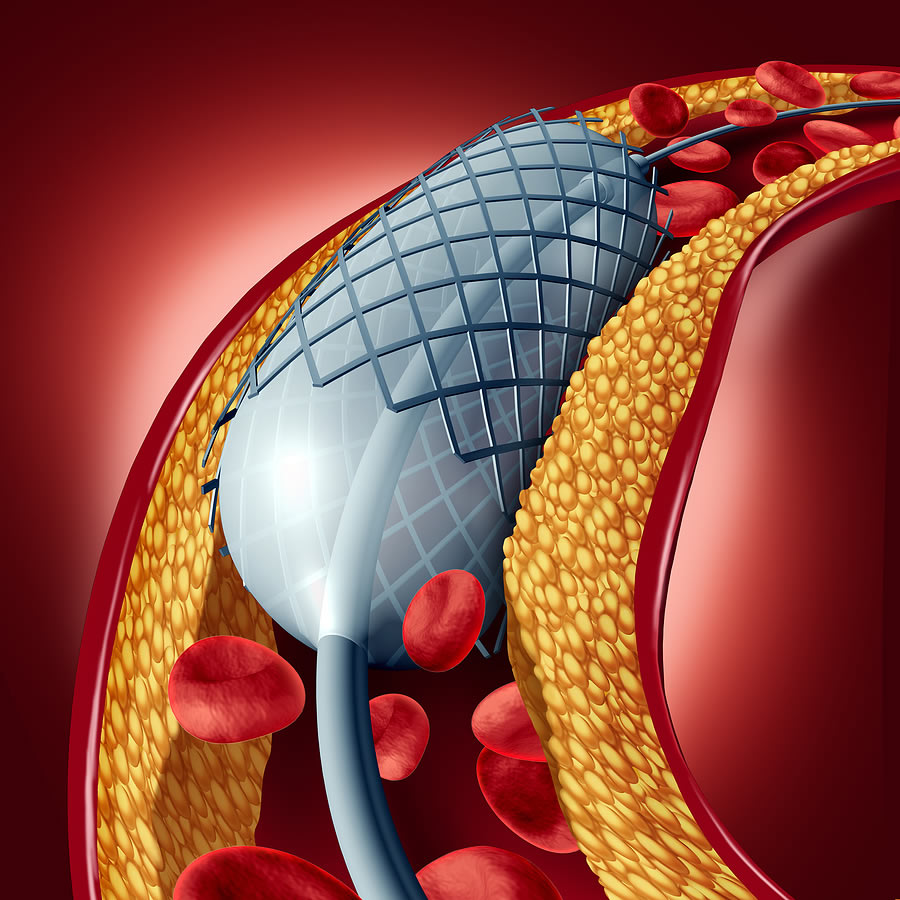Menu
- Home
- Treatments
- Our Providers
- About Us
- Patient Info
- Testimonials
- Locations
- Blog
- Financing
- Contact Us
- Home
- Treatments
- Our Providers
- About Us
- Patient Info
- Testimonials
- Locations
- Blog
- Financing
- Contact Us

Experiencing blockages in your arteries can be frightening. However, with help from an experienced vascular specialist, you can find the right treatment options to ensure that your health is improved moving forward. At National Vascular Associates, we offer a comprehensive selection of vascular care services including stent placement. If you're considering this important procedure, continue reading to find out what to expect during and after stent placement, and how a vascular doctor can help protect your heart's health.

The decision to proceed with stent placement is a critical one, made when plaque buildup causes narrowing or blockages inside the arteries which supply blood to your heart. To ensure the best outcome, it's important that you discuss all possible risks and benefits with your vascular doctor to make an informed decision. The stent is introduced during an angioplasty procedure to open these arteries, enhancing blood flow, alleviating symptoms such as chest pain, and, in more critical situations, helping to prevent heart attacks.
The stent placement process is straightforward, thanks to the assistance of a vascular specialist. Under local anesthesia, to ensure comfort, a small incision is made in either the groin or wrist to insert a catheter into the affected artery. Advanced imaging techniques guide the catheter's placement, ensuring precision throughout the procedure. A balloon on the catheter inflates to clear the blockage, and the stent then expands to hold the artery open. The procedure usually takes about an hour, offering lasting benefits to your heart health.
Recovery is generally quick. After a brief period of observation, the majority of patients can then resume their normal activities within a week, or when feeling improved health. During this period, it's important to closely monitor for signs of unusual symptoms or discomfort and report them to your vascular care provider immediately. It's important to note, however, that the stent supports your condition but does not cure it. Following your doctor's guidance on medications, particularly antiplatelet drugs, to prevent blood clots and attending follow-up appointments are important for a successful recovery.
The placement of a stent offers an opportunity to improve your heart health, but maintaining the benefits requires a commitment to lifestyle changes and regular care. This includes adopting a healthier diet, engaging in physical activity, quitting smoking, managing stress, and attending regular medical check-ups to monitor your heart's condition.
After receiving a stent, you will likely start taking some new medications, with antiplatelet therapy being a critical component to prevent clot formation within the stent. It is vital to understand your medication plan and adhere to it closely in partnership with your healthcare doctor.
Taking an active role in your recovery and ongoing heart health is essential. Staying informed, participating actively in your recovery process, and committing to necessary lifestyle changes are key. The team at National Vascular Associates is here to support you. We offer compassionate vascular care, to ensure a smooth recover that's aimed at achieving long-term wellness. Contact our office to learn more or to schedule a vascular treatment consultation.